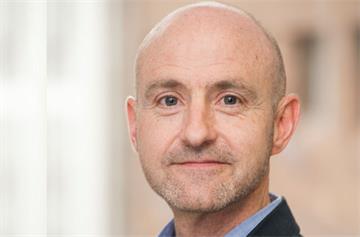Crohn's and colitis event to take place in Oxford

Members of the public have been invited to learn about the latest developments in clinical care and research relating to Crohn's disease and ulcerative colitis at an event at the John Radcliffe Hospital.
Crohn's and Colitis Open Evening: The Changing Face of Inflammatory Bowel Disease - Progress in Research and Clinical Care, which takes place on 21 March 2023 from 5.30pm to 7.30pm, will feature talks and a question-and-answer session about the latest research and management of inflammatory bowel disease (IBD).
Tickets to attend the event in person have sold out, but the event can be viewed live online.
Crohn's and Colitis Public Information online event - eventbrite
It has been organised by the National Institute for Health and Care Research, the University of Oxford and the charity, Crohn’s & Colitis UK (CCUK).
Crohn's disease and ulcerative colitis are types of IBD, where parts of the digestive system become inflamed and diseased. Symptoms include diarrhoea, stomach pain and weight loss. The exact cause is still unknown, although drugs and surgery can reduce or control symptoms.
Dr Jack Satsangi, Professor of Gastroenterology at the University of Oxford and a Consultant Physician at the John Radcliffe, said: "Inflammatory bowel diseases, Crohn's and ulcerative colitis now affect almost one in 100 of the UK population.
"Our work is heavily focused to improve the care of people who develop these illnesses. Research projects currently in progress include studies to identify the genetic and environmental factors that are involved in the development of inflammatory bowel disease in both adults and children.
"Importantly, a number of studies aim to deliver personalised care so that each individual with Crohn's disease or ulcerative colitis receives the most effective, and the safest therapy available. The research aims to allow patients to enjoy a high quality of life and live as healthy and unrestricted life as possible.
"There has been great progress in developing new therapies over the last 20 years, and nowadays the outlook is much better for the majority of patients with Crohn's disease than had been the case previously. Most patients with IBD are now able to look forward to living full and active lives. Indeed, many of the ambassadors of CCUK are well-known personalities in sports, and in the arts and music. They have excelled in highly demanding careers whilst living with their illnesses."
Buckinghamshire's Tim Hammond, 57, (pictured) who was diagnosed with Crohn's disease 25 years ago, urged others to join the event.
He said: "I had been suffering for quite a while before diagnosis, around 10 years. At that point, I didn’t know what Crohn's was. I was feeling very tired, needed to go to the loo a lot and had a sore tummy. I was in my 20s and just thought I probably wasn't looking after myself very well at that age.
"Although being told you have a disease that there's no cure for is the last thing you want to be told, giving it a name and having that understanding of what was happening helped me a lot."
In 2019 Tim took part in a trial which found drug risankizumab can induce and maintain remission in those with moderately or severely active Crohn's disease.
He said: "It had an almost instant positive effect on the Crohn's. I felt so much better. The care and attention I receive on the trial is just outstanding, the trial team are just incredible."
Tim, the director of a media production company, said: "I've been to a lot of these events put on by the team and have found them to be entirely positive. The people in the room really know their stuff and talk about managing Crohn's in such a positive way."
Participating in health research helps develop new treatments, improve the NHS, public health and social care and save lives.
The NHS, public health and social care supports research by giving patients opportunities to take part in trials. Healthy people can also take part so results can be compared to those with a medical condition.
Patients are also encouraged to ask their doctor or health professional about research opportunities and view trials seeking volunteers:




























































